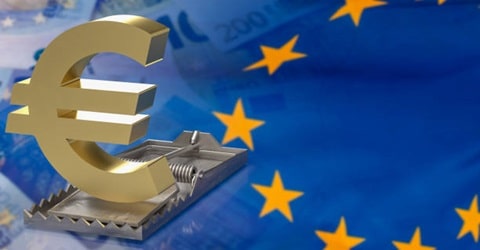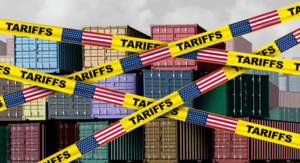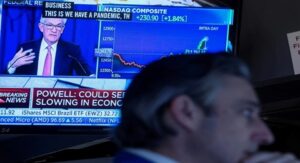
The Role of European Central Bank in Decarbonization and Price Stability, Rethinking
The role of European Central Bank in decarbonization is significant yet underexplored. French President Emmanuel Macron’s call to broaden the ECB’s mandate to include decarbonization targets, though seemingly radical, addresses a crucial gap in current policy.
Traditionally focused on price stability, the ECB’s role must evolve to support the EU’s broader economic goals, including climate action. This transition necessitates balancing inflation control with investment in green technology, without stifling productivity or sustainability.
As central banks face the practical challenges of the green transition, integrating climate considerations into monetary policy is essential to avoid amplifying economic disruptions and achieving long-term stability.
The Role of European Central Bank in Decarbonization
At the end of April, French President Emmanuel Macron proposed that European leaders should consider broadening the European Central Bank’s (ECB) mandate to include decarbonization targets. Though his proposal was largely ignored, it offers a profound opportunity to align the ECB’s policies with the urgent need to combat climate change.
This article delves into the potential role of the ECB in decarbonization, emphasizing its mandate, the necessary balance between price stability and environmental sustainability, and the broader implications for the European economy.
Read More: Capitalism’s Impact on Democratic Principles
Table of Contents
1. Expanding the ECB’s Mandate
The ECB’s primary mandate, as stipulated by the Maastricht Treaty, is to maintain price stability. However, the treaty also allows the ECB to support the European Union’s broader economic policies, provided this does not prejudice its primary objective. This hierarchical mandate traditionally places price stability above other considerations such as employment and financial stability.
The role of European Central Bank in decarbonization fits within this framework, as Macron’s suggestion to include decarbonization within the ECB’s mandate aligns with this broader interpretation, advocating for a nuanced approach where environmental sustainability is integral to economic stability.
Read More: Impact of Debt Crisis On Climate Action
2. Integrating Climate Considerations into Monetary Policy
In its 2021 strategy review, the ECB acknowledged the importance of incorporating climate change considerations into its policy framework. However, climate objectives were positioned as secondary to price stability. This creates a potential conflict, as measures to achieve price stability can sometimes undermine climate goals.
For instance, aggressive interest rate hikes could discourage investment in green technologies, which require substantial upfront capital. The role of European Central Bank in decarbonization thus becomes crucial, necessitating a more flexible and integrated approach to monetary policy, one that can balance short-term inflation control with long-term environmental sustainability.
Read More: Empowering African Women
3. Addressing Trade-offs and Conflicts
The pursuit of price stability often involves trade-offs with other objectives. Central banks, including the ECB, typically manage these trade-offs by allowing some short-term divergence from inflation targets to mitigate transitional costs such as lost employment or reduced output. However, there is currently no established procedure within the ECB for setting monetary policy when objectives clash.
Macron’s proposal highlights the need for formal criteria to guide the ECB in balancing these trade-offs, particularly when they impact efforts to combat climate change. Integrating the role of European Central Bank in decarbonization into these criteria could further align monetary policy with broader environmental goals.
Read More: Unlocking Amazon Conservation Beyond Bioeconomy
4. Impact of Regulatory Constraints and Supply-side Factors
Decarbonization involves regulatory constraints on the use of fossil fuels, akin to supply-chain disruptions or geopolitical shocks. These constraints can lead to supply-side inflation, where monetary policy’s traditional tools are less effective. In such scenarios, the ECB must rely on other instruments to manage inflation and support the green transition.
The role of European Central Bank in decarbonization is crucial here. For example, policies that promote investment in renewable energy and green technologies can help mitigate the inflationary pressures associated with decarbonization.
Read More: How Guyana’s Sustainable Economic Model is Transforming Latin America
5. Investment in Green Technology
Investment in green technology is crucial for the transition to a sustainable economy. The ECB must ensure that its monetary policies do not hinder the necessary investment in research and development of green technologies, thereby supporting the role of European Central Bank in decarbonization.
High interest rates can discourage such investment, particularly in sectors perceived as risky. Encouraging investment through supportive financial and fiscal instruments is essential to foster innovation and long-term productivity.
Read More: Collective Climate Actions
6. Balancing Short-term and Long-term Objectives
Tightening financial conditions to control short-term inflation can have long-term adverse effects on productivity and sustainability. An economy that invests inadequately in green technology and remains dependent on fossil fuels will be more vulnerable to inflation and supply constraints. The role of the European Central Bank in decarbonization is crucial as the ECB must strike a balance between controlling inflation and supporting sustainable growth.
This involves creating a transparent, research-based framework for managing the costs and benefits of inflation control and other objectives, including decarbonization.
Read More: Crucial Role of Economic Growth in Averting Climate Catastrophe
7. Operationalizing Flexibility in Mandates
Recognizing the complexities of the green transition, some central banks have already incorporated flexibility into their mandates. The role of European Central Bank in decarbonization is crucial as the ECB needs to operationalize this flexibility by developing a transparent framework for integrating climate considerations into its policy decisions. This involves ongoing research, stakeholder engagement, and clear communication about how the ECB intends to balance its various objectives.
Macron’s suggestion could serve as a catalyst for this process, encouraging the ECB to adopt a more proactive role in the fight against climate change.
Read More: Public Private Partnerships for Decarbonization
Bottom Line
The proposal to broaden the ECB’s mandate to include decarbonization targets is not merely a radical idea but a necessary evolution in the face of climate change. By integrating climate considerations into its monetary policy framework, the ECB can play a significant role in supporting the European Union’s broader economic and environmental objectives. This requires a delicate balance between price stability and sustainability, supported by a transparent and research-based approach to policy-making.
Embracing this opportunity can help ensure that the ECB contributes to a resilient and sustainable European economy, avoiding the risks of both unchecked inflation and environmental degradation. The role of European Central Bank in decarbonization underscores its potential to influence not only monetary policy but also environmental policy, marking a significant step towards a greener economy.







